Today’s post is more of a personal essay. It’s something I’ve written some form of in my newsletter and on Instagram, but I decided to gather all these thoughts dancing around in my head in one post and share them with you. And even though it’s about my personal experiences, I have a feeling that the overall issue is something that many of you, Iranian or not, will be able to relate to. And if so, please do share your experiences below- especially if you happen to be another Pontia/Pantea out there! 🙂
My name is Pontia
Some of you know me personally, some of you I’ve met in Tehran (which is always cool), but to most of you, I’m just a name. And an unusual one at that. One that you’re probably not too sure how to pronounce (unless maybe you’ve read my About page, but even then…). How the heck do you say Pontia? I know what you’re thinking- it looks like “Pontiac” without the “c”. So is it Pon-tee-uh? Actually, it’s two syllables and a silent “i”: Pon (like “ponder”) tuh (like “tummy”). Pon-tuh (using the Americanized pronunciation, anyway). Pontia.
On how I got my name
My parents named my siblings and me names that start with a ‘P’. Why? Because in the West, Iranians are always mistaken for being Arab. My parents figured that if their children had names that started with a P, no one would make such a mistake because- HELLO!- the Arabic alphabet doesn’t have a P! So obviously we weren’t Arab. It was the perfect plan! Except what my parents didn’t realize was that this fun fact was only obvious to Iranians. For Westerns, Iranian and Arab was like, eh, potato, potah-to.
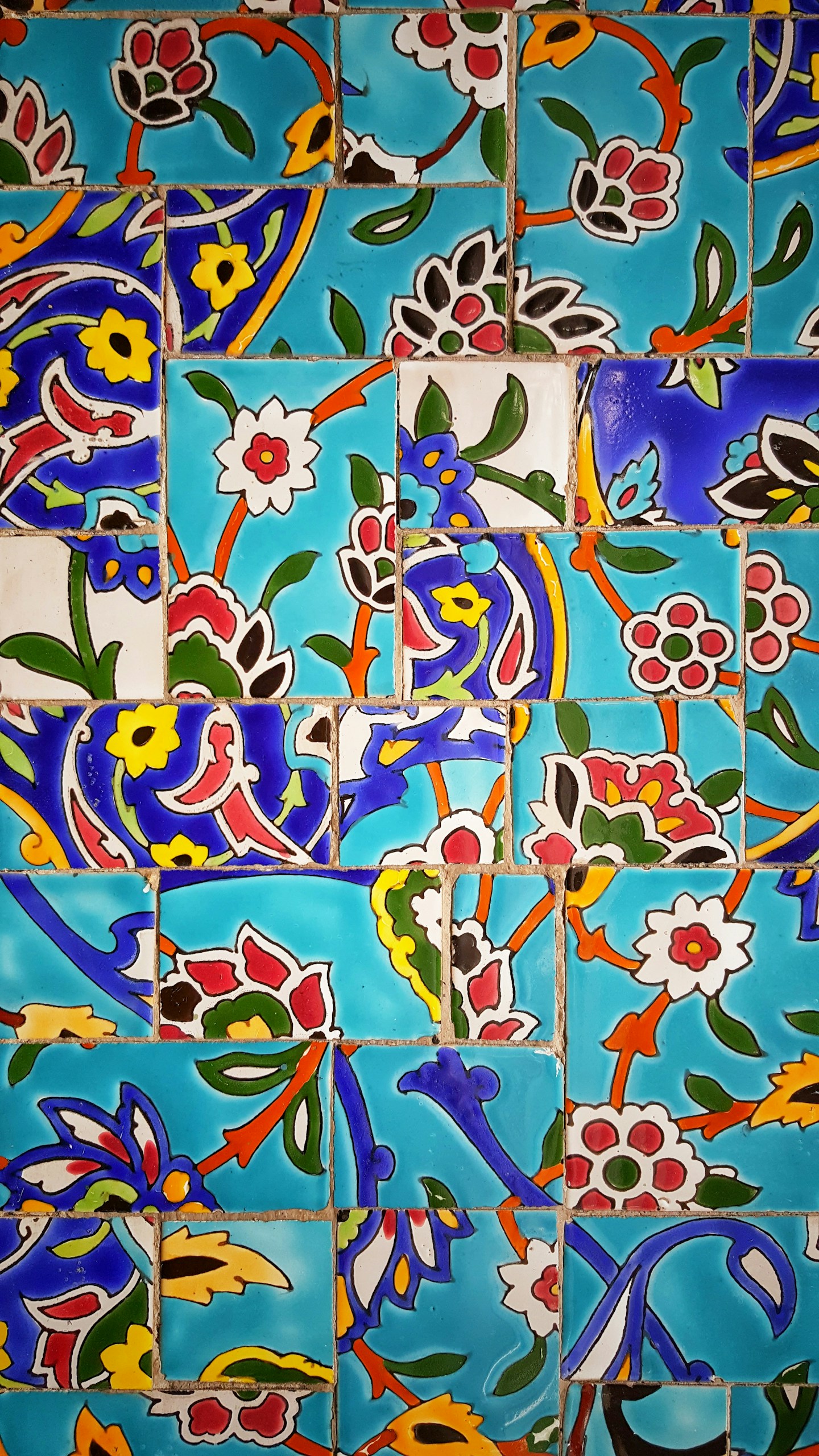
On pronunciation
All my life, whether in school or at work, I always knew when someone wanted to say my name because there was an exaggerated pause followed by a, “Huh, I’m not sure how to say this.” In Alabama, the name Pontia was “interesting” (which was the polite, “southern hospitality way”- if you will- to say “strange” or “odd”). They’d mumble some form of my name before quickly moving on.
You can imagine that in a place like Alabama, my friends’ names were much different. They had names like Laura, Anna, Jenni, and Mary Margaret. And no one ever messed those up. The most they ever had to deal with was something like “It’s Jenni with an ‘i’.” They were lucky. My name, on the other hand, required some heavy explanation.
“What’s your name?”
“Pontia.”
“What?”
“Pontia. P-o-n-t-i-a.”
“Pon-tea-uh?”
“Pon-ta. The ‘i’ is silent.”
“So why is it in there?”
“Well, because in Persian, it’s Pon-teh-âh.”
“Pon-teh-âh?” they laughed.
“That’s technically how you pronounce it, but nobody really says it that way. They mostly skip the second syllable and say Pon-tâh.”
“Well, that’s a little easier than Pon-teh-âh.”
And that would usually exhaust me enough to never want to explain my name again. Which is probably why I let my 7th grade science teacher call me Portia for an entire school year.
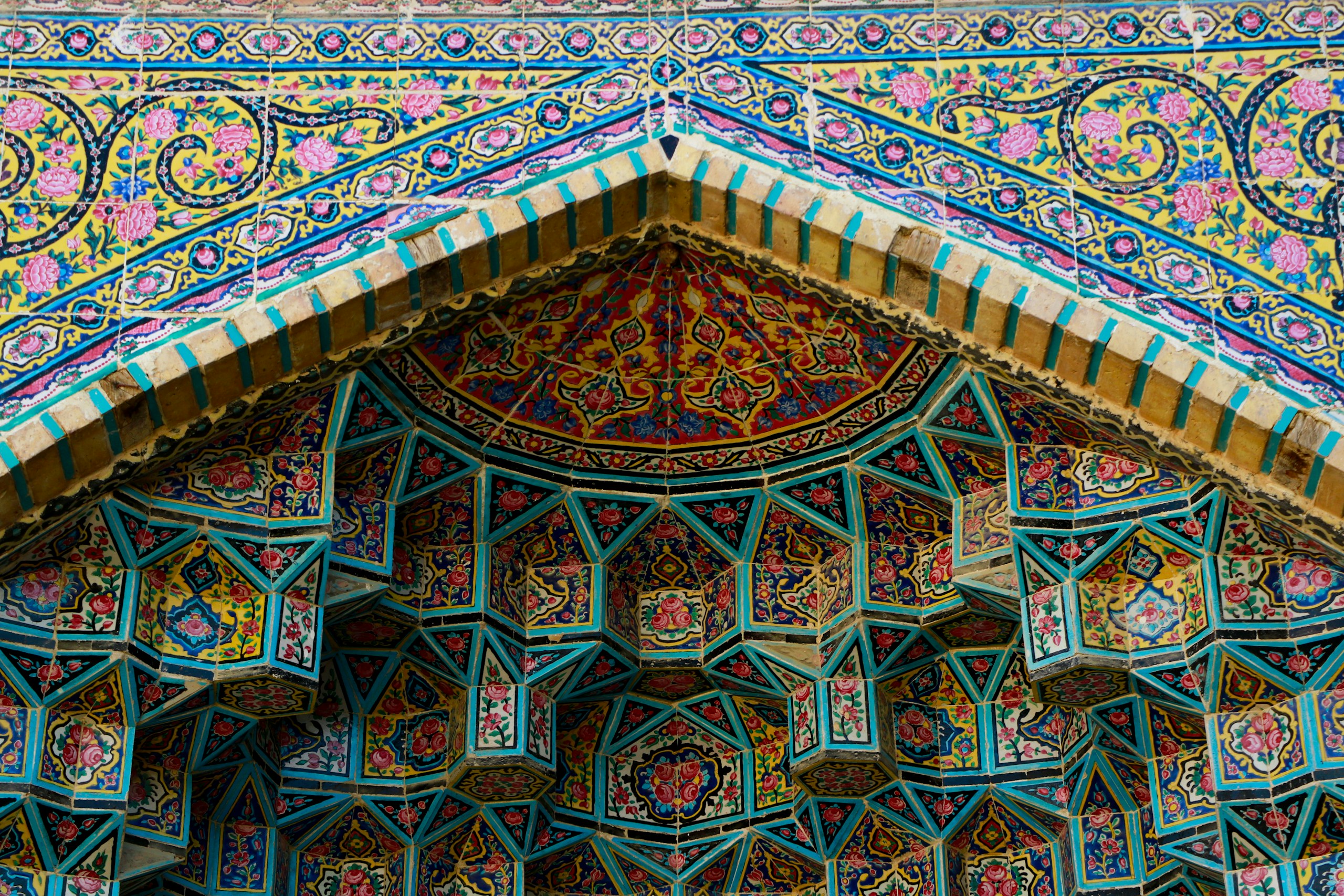
On why I never opted for an American name
To prevent such problems, many Iranians around me had adopted American names. Pedram became Peter. Farnaz became Janelle. Mehran became Mark. Farid became Fred.
That was great for them, and they probably had a much easier time fitting in. I never considered changing my name, though. One reason was that I guess I never fully realized that this was a viable option.
Then again, it could have been this deceptively minor yet significant event that happened at an early age:
In the third grade, we had a class assembly with a Native American man as our guest. After the presentation, the students went to introduce themselves and talk to him. He asked everyone’s names, and when he got to me, I thought, “Here we go.”
“I’m Pontia,” I said shyly, expecting nothing more than a smile and a nod. Instead, I was met with sparkling eyes and a look of intrigue.
“Pontia… wow, that is a beautiful name! What’s the origin of that?”
I was so taken aback by his response, that I was at a loss for words. “Um, Iranian.” I didn’t even try to sugarcoat it by calling it Persian.
“Iranian, wow! And what does it mean?”
“It was the name of an ancient Persian queen,” which was the simplified version I had been told at that tender age.
“Well, it’s beautiful!”
“Thank you,” I responded elated that he was so interested in my name and couldn’t have cared less about Mary Margaret’s or Anna’s. For once in my life, having this name made me feel special and unique, not ashamed and embarrassed with a sense of dread as to how I was going to explain it yet again.
I wish I could remember more about this gentleman, but I only have a dream-like memory of him. But the fact that he was the first person to ever validate my name is absolutely tattooed in my mind. He took interest in it, he repeated it, he asked about the origin and meaning. But most importantly, he said it was “absolutely beautiful.” No one had ever said that to me before. And for all of that, I’d like to take a minute here to thank this kind stranger who will never know just how much his kind words meant to me.
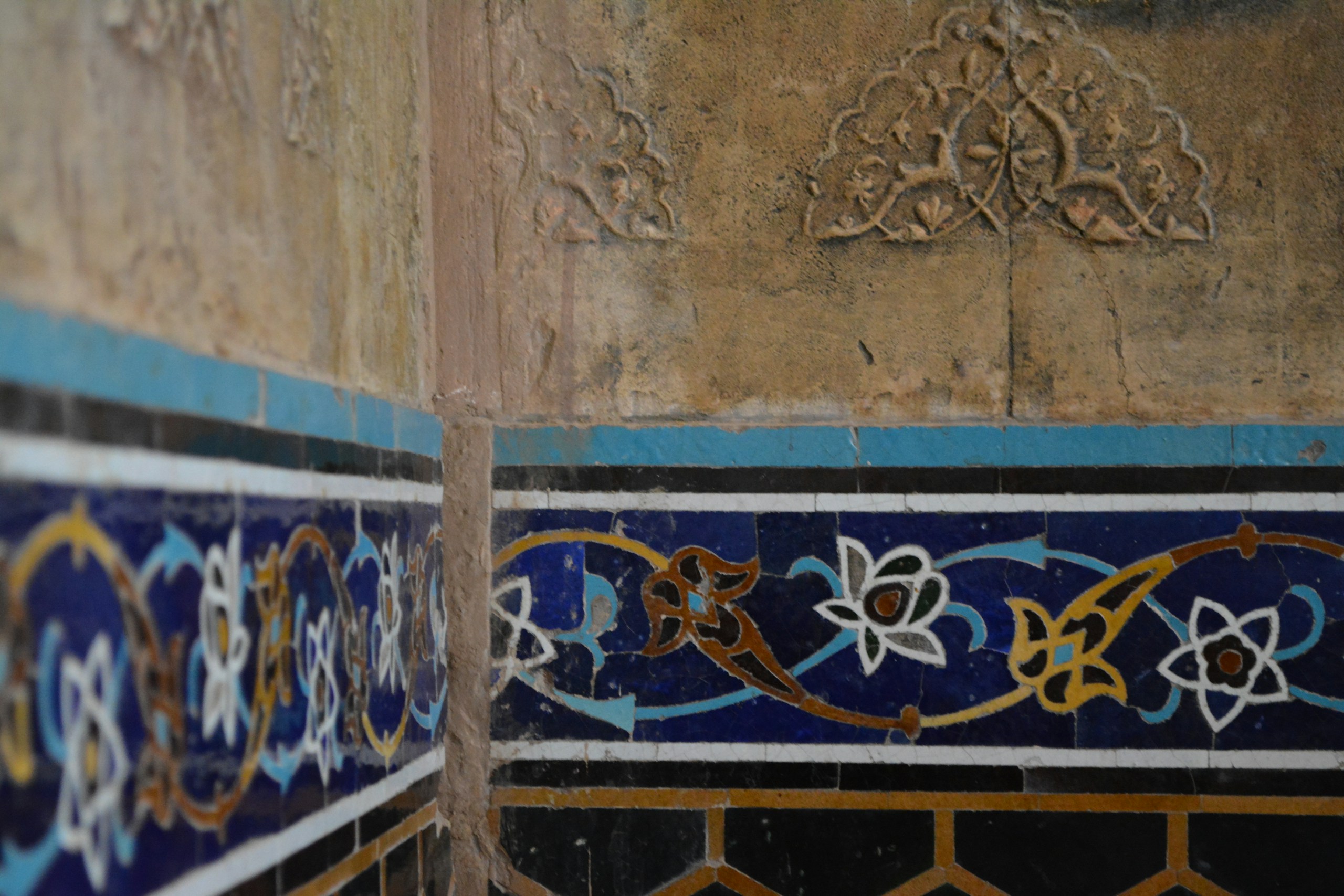
On problems in Iran
My name made introductions in the US more challenging than the average American’s, but I figured that I’d at least have some reprieve during the summers I spent in Iran in my mom’s small hometown of Neyshabur in northeast Iran. Like Cheers, I thought, this was a place where everybody knows my name. For once, I’ll get to feel normal like Jenni, Mary Margaret, and Anna. When they ask my name, I’d proudly say “Pontia” and fit in right alongside Sanaz, Reyhaneh, and Niloofar.
Until I realized there were problems there, too.
And it all started when my cousin took me to her English class, excited to show off her American cousin to her classmates. In class, she raised her hand to tell her teacher, Mr. Sakaki, that I was her American relative and asked if I could stay as a guest that day.
“You’re American!” he exclaimed. “Why don’t you come to the front and speak for us a little. It’s not every day we get to hear a native English speaker.” I reluctantly went to the front of the class and answered his questions.
“What’s your name?”
“Pontia.” I said confidently, knowing that I was in Iran, and everyone would get it.
“And how long have you lived in the US?”
“I was born there.”
“Excellent! And which do you like more, the US or Iran?” He asked the question that Iranians loved to ask more than any other. Loyal to both sides and not wanting to offend anyone, I gave the most diplomatic answer I could think of at the age of eight (which was also the truth- at the time, anyway).
“Well, I like Iran, but I prefer living in the US.”
As I walked back to my chair, I passed the other girls who were staring at me and giggling. They approached me after class. “So you are from the US. What did you say your name was?”
“Pontia.”
“What kind of name is that!? Is it Iranian?”
“Yes,” I answered, uncertain as to why they would ask such a question.
“No, it’s not! Who’s ever heard of Pontia!? Is one of your parents American?”
“No, they’re both Iranian,” I said completely confused as to how they had never heard my name before.
I was shattered. It was one thing for my name to be unusual in the US, but how could it be strange in its native land? But it wasn’t just the girls in my cousin’s class who had never heard my name before. As an adult, I found out that Maman Bozorg (my [maternal] grandmother) thought it was foreign, too. Apparently, when I was born, she told her friends and other family members, “They’re naming her Pontia. Khârejiye.” (It’s foreign.)
I supposed my name is not all that common in Iran, and I’ve found Iranians belong to one of two categories: those who have never heard of Pontia and those who have. A few Snapp drivers here in Tehran have asked me if it’s Armenian. And one particularly cheeky driver started up with me as soon as I sat in his car. “You’re name is Pontia?” Yes. “What do they call you at home? I mean that’s just too hard. You have a ‘Pon’, a ‘teh,’ and then a ‘Ahh.’ It takes forever to say.” Haha, well some people call me Pâni. (In middle school and high school, some called me Pont.) “Pâni. That’s much easier.” When I arrived at my destination, he gave me a hearty, “Khodâ hâfez PÂN-TEH-ÂÂÂÂ,” and made a hand gesture like he was Christina Aguilera belting out a high note.
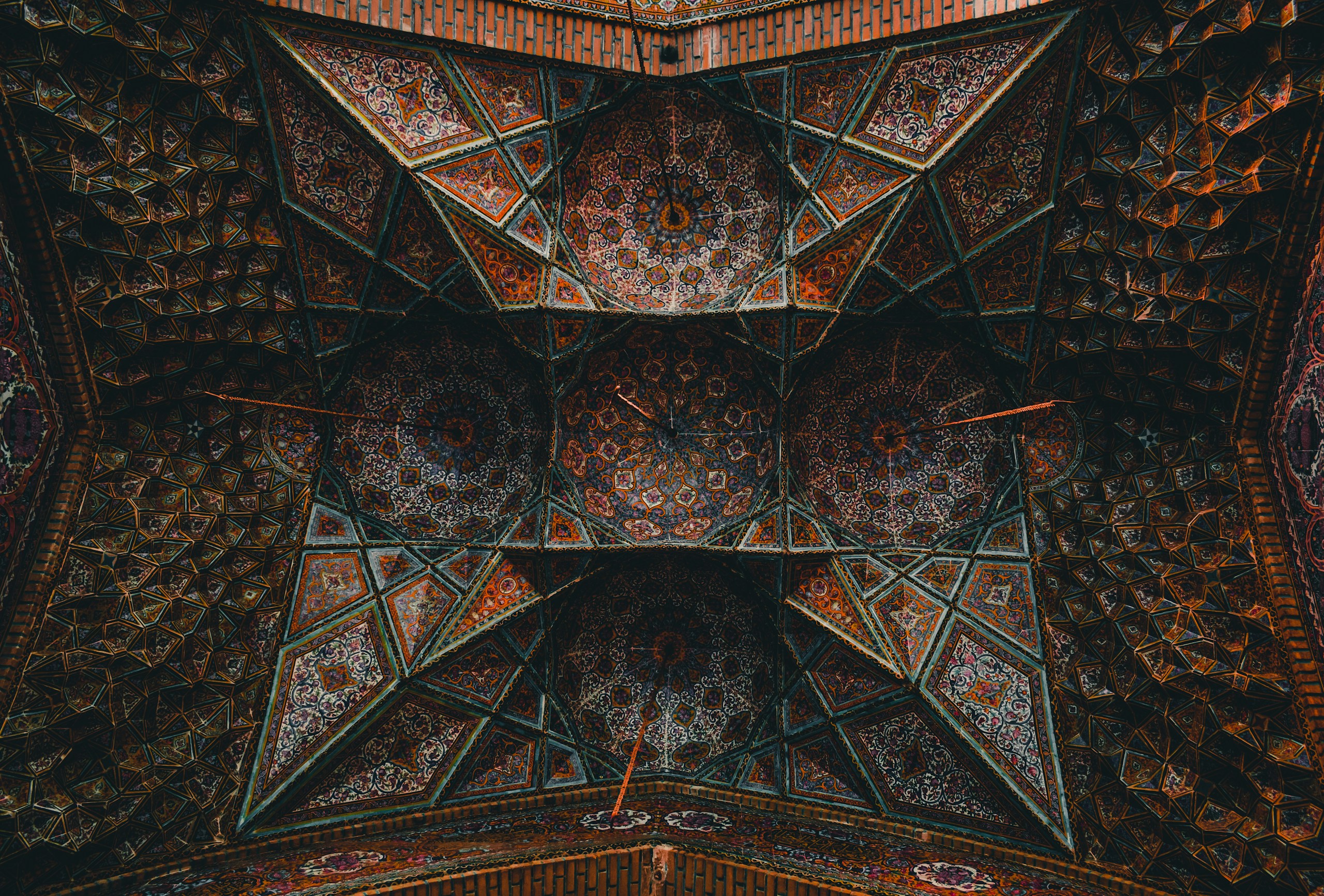
On spelling
And that brings us to the issue of spelling. Usually, if someone doesn’t understand something verbally, they ask how it’s spelled, right? And that should [hopefully] fix the problem. Not so much in my case. In fact, spelling just causes more problems. In Spain, when I introduced myself as Pontia the reply was always, “Fanta? Como la bebida?” (Fanta? Like the drink?) No, no. Pontia, with a ‘P.’ Then they’d ask me to spell it. “Ahhhh, Pon-tee-yah!” Sure, why not.
In Greece, they raised a not-so-subtle eyebrow when they saw my name.
And in Iran, I got a hard time, too. “P-o-n-t-i-a is wrong. You should spell it P-a-n-t-e-a. That’s the correct way.” I couldn’t get on board with this logic considering you were writing something phonetically from a completely unrelated script which meant that it could be spelled any which way, and no one way was absolutely correct, perhaps just more common. Also, I tried to explain that an American reading “Pantea” would pronounce the first syllable “pan” (like frying pan). And God forbid they pronounce “tea” like the drink! That just ain’t right, folks.
Much to my chagrin, I noticed that even the Persian spelling gets butchered. For the record, the correct spelling is پانته آ . One of my cousins noted how unusual (and cool) it was that it has an alef “with the hat on it” at the end (because that letter usually comes at the beginning of a word). A co-worker of mine spelled it the way she said it, پانتا. Countless others spell it based on the English spelling so that it looks like پونتیا. And judging from this, I can only conclude that they don’t know the Persian. Or maybe they don’t recognize that Pontia is actually Pantea. The funny thing is, on two or three occasions, it has actually been a khâreji who has asked, “Pontia. Do you mean like Pantea?” And to them, I tip my tiny virtual hat.
What I find most hilarious and incredibly cute, though, is when Iranians spell it “Pante A”. That’s right- replete with a space and a capital A to correspond with the Persian alef “with the hat on it”. My name is written as such on my ATM card, and you better believe that when it expires, I will frame that sucker and hang it on my wall.

On meaning
And I guess all of this brings us to the meaning of Pontia, last but certainly not least. Iranians for whom Pontia is no strange name gasp when they hear it. “Pontia! You know what your name means, right?” Indeed, I do.
As a former contributor to Culture Trip, I was commissioned to write an article on the most beautiful Persian names. In a blatant act of self love (yes, let’s call it that), I included my own on the list. Not necessarily because I think it’s the most beautiful (although I do love the uniqueness of it, even in Iran), but I guess it was more about validating my own name and perhaps unconsciously trying to make it more visible to the world… even if I did spell it Pantea… *sigh*.
So what does it mean? Here’s the tragic story I’ve read and been told (although I half expect an Iranian to comment on how I got it all wrong…):
In Persian folklore, Pantea was supposedly the most beautiful woman in Asia. So beautiful, in fact, that she kept her face covered to prevent men from falling in love with her. Her husband, the king of Susa, fought against Cyrus the Great. After Pantea was captured by Cyrus’ army, she was brought to serve as his possession. However, Cyrus had heard of her beauty and because he knew she was married, he refused to look at her for fear that he would also fall in love. Because Pantea was treated honorably, she was able to persuade her husband to side with the Persians. After he was killed in battle, Cyrus relayed the news to a devastated Pantea, who later committed suicide. Cyrus buried her next to her husband.
You can read about the meaning of Pontia/Pantea and the other Persian names that I chose for the article here.
Share it on Pinterest


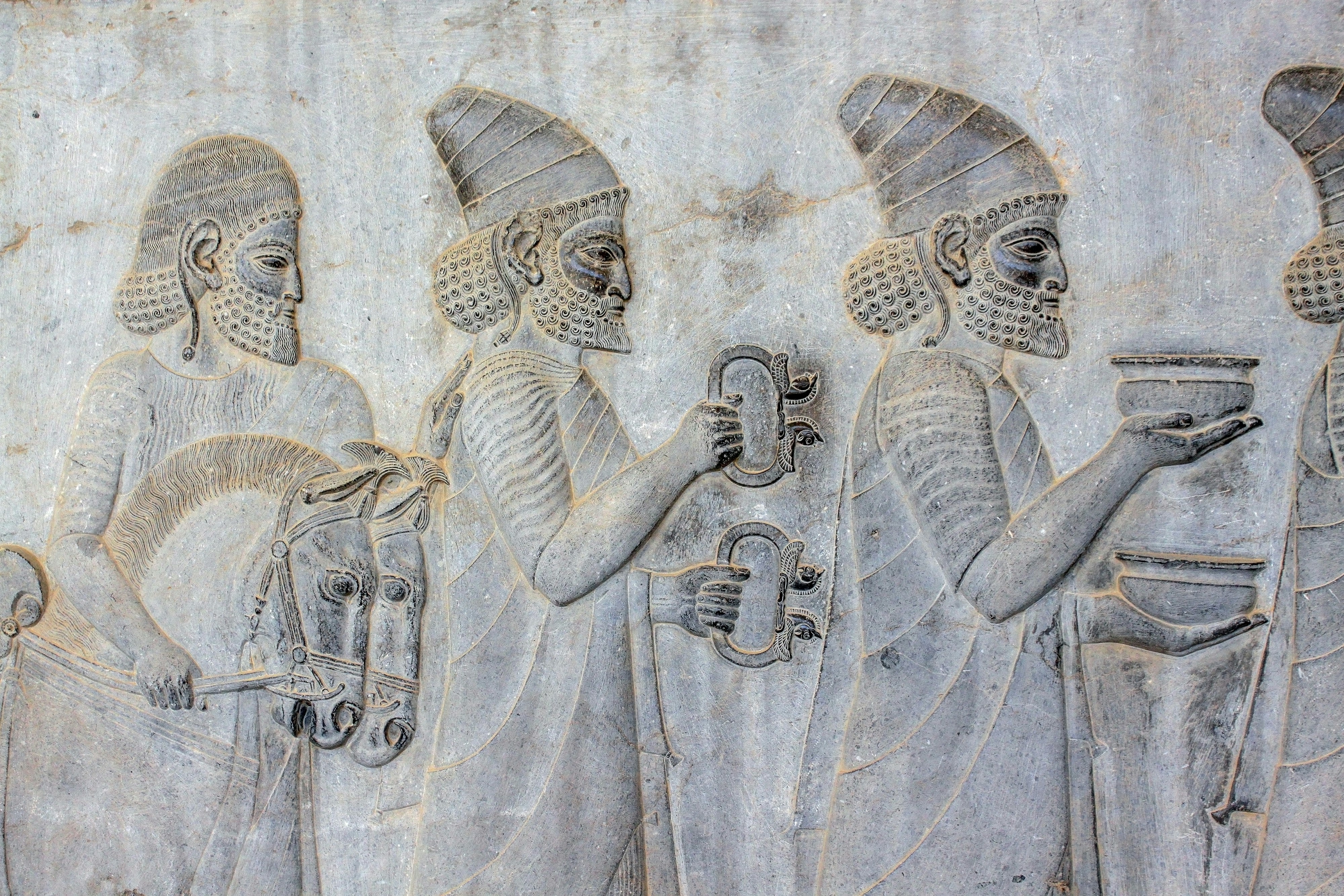



Jess
17 August 2020 at 16:55Your name is lovely, and (because I’m an ancient history nerd) I’d heard the story before but not from the Iranian side. I appreciate that Pantea is remembered as well in folklore, not just her husband. Too often in Western lore the women are just written out altogether. I love your blog, btw: I’ve been following it a while now and it’s wonderful.
Pontia
17 August 2020 at 17:18It’s definitely a good thing that Pantea is remembered, even if she’s not as well known 🙂 Thank you so much for your kind words and for reading!
dana
17 August 2020 at 17:15Lovely, funny, and totally relatable!! My married name was Shahandeh and, here in Texas shortly after the hostage crisis/situation, someone once asked me “Is that Irish?” Funny how easy it was for people to say Shahandeh if it was Irish!! So oftentimes I would just say “yes” – and smile because my maiden name was O’Connor and I didn’t feel quite that dishonest that way 🙂
Pontia
17 August 2020 at 17:21That’s so funny! I could see how they might think it’s Irish. Someone once asked my Iranian friend if her name was French-Lebanese, which seemed oddly specific to me. But sometimes “yes” is the correct answer, haha 😉
Ponteha
17 August 2020 at 18:25Ah! I cannot tell you how much I feel like I wrote this myself! I am also a “Pantea” variety– although my mother spelled it Ponteha (I get a lot of heavy-on-the-H “Pon-tee-HHHA” pronunciations from strangers). I go by Ponti for short though. I have never met, but have heard of only one other Pantea/Pontia/Ponteha before you, which made me love your blog that much more, and so excited to see this post!
I also remember being so excited to be in Iran and finally be someplace that my name was normal only to realize that it is almost as unusual there as it is here in the states! And the vague, “She was a queen…” explanation– it feels so good to know of someone else who experiences the exact same exchange during an introduction as me.
Thank you for this post! I know that we do not know each other but I cannot help but feel that all Panteas (and those of us with derivative spellings) share a special connection 🙂 Especially if you were teased by being call Pontiac!! Though– not sure if you also experienced this– but I got also got Pochahontas a lot!?
Pontia
18 August 2020 at 04:00Another Ponteha/Pantea/Pontia! I knew you had to be out there! I can’t tell you how happy this comment made me! Someone else who can feel my pain 🙂 I was actually called Ponti a lot in school too. And I knew one other girl who spelled it Panteha, and she got a lot of heavy-on-the-H too! I remember getting a couple of Pocahontas, but more so Pontiac. I even got a few falafels because of my last name (Fallahi). Sigh. Thank you for reading this post, and I hope it made you feel less alone. I know your comment did for me <3
Chris Isbell
17 August 2020 at 20:10I share your pain. My family name is quite unusual and people very frequently get it wrong – adding a bit or missing off the first part. I always say to myself that they are not being deliberately difficult and try to be patient. It is not nearly as bad as the constant teasing I got at school.
There are other ways that Persian names can be confusing to English speakers. I have a friend who is known as Leila to her English friends, but Nasim to her Iranian friends when they speak Farsi. We have a mutual friend also called Nasim, just to add to the confusion. Another friend sometimes adds the prefix “Pour” to her family name, sometime not. Fortunately, one of the Nasims explained this to me.
Iranian women keeping their maiden name on marriage, unlike the convention I am used to, combined with the reserved way Iranian couples generally behave in public sometimes means it takes a little while to discover that they are married.
Pontia
18 August 2020 at 04:05You’re absolutely right that people aren’t being deliberately difficult, and some people make an honest effort. It just gets a little tiring sometimes, and of course the teasing…
The prefix/suffix thing on last names confuses me too to be honest. I can’t tell you how many times Iranians simply cut off the “i” in my last name. It’s funny they only do it to certain names, though, not all.
Ali
18 August 2020 at 05:25By having one of the most common names, I was usually called by my last name due to be recognized from other alis in the place. Also I am sometimes faced with the funny/nonesense question:”Are you an empty Ali? You mean don’t you have any Amir or Reza before/after it?!!” But nowdayes I feel that my name is becoming more and more unique day after day and it’s been a long time I haven’t heard that funny question.
Pontia
18 August 2020 at 07:16“Are you an empty Ali?” That is a funny question! It’s comforting to know that even people with more common names sometimes have problems too 🙂 I’m glad to hear that you feel your name is becoming more and more unique. I completely agree! Thanks for sharing your experience.
Ryrie Ann Bridges
18 August 2020 at 08:36Your post resonates. My name is Ryrie. From “How do you pronounce that”, “where did that come from”, “what an unusual name” “where does it come from” are ongoing and have been with me all my life. At one point, as a child, when some young people at the beach asked me my name, in desperation, I said “Ann”. All very well, except I did not respond when they called me Ann.
Pontia
18 August 2020 at 11:35What a beautiful name! I definitely relate to not responding when they call you a different name. I have an alias I use at places like Starbucks, etc., and sometimes it takes me a minute to realize they are calling me!